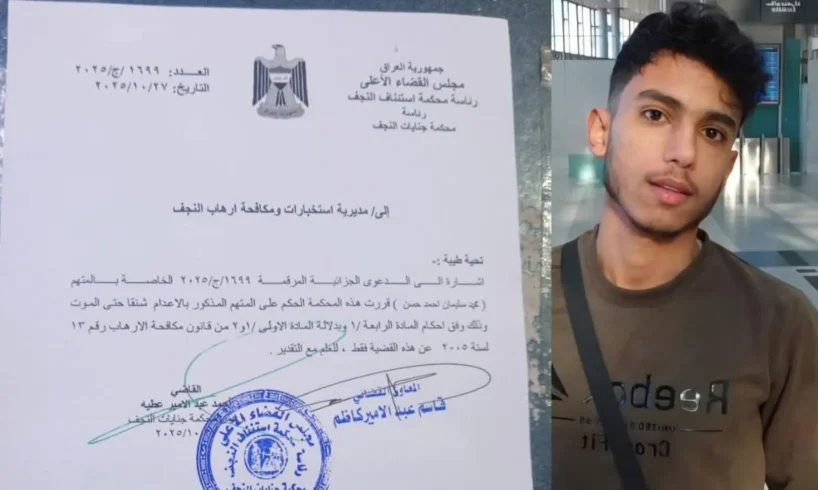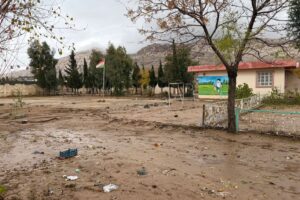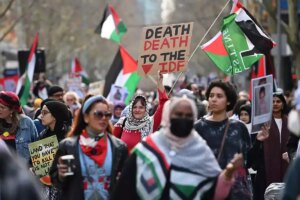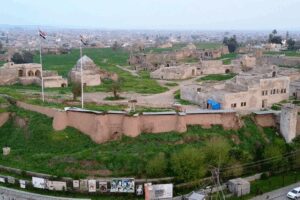
Shafaq News – Baghdad
A death sentence handed
down by an Iraqi court against a Syrian national convicted of terrorism has
unsettled the country’s large Syrian refugee community and reignited debate
over how Iraq balances justice, security, and social cohesion in the post-ISIS
era.
The Najaf Criminal
Court sentenced Mohammed Suleiman Ahmed, a Syrian citizen, to death under
Article 4 of Iraq’s Anti-Terrorism Law, which prescribes capital punishment for
those found guilty of committing, assisting, or financing terrorist acts. The
court said the ruling followed full legal procedures and a confession from the
defendant.
While the judiciary
defended the verdict as due process, its impact has reverberated far beyond
Najaf, stirring fear among Iraq’s roughly 250,000 Syrian residents, many of
whom worry that one man’s crime could taint an entire community.
Refugees Fear
Backlash
In Baghdad, where
tens of thousands of Syrians work in trade, construction, and small industries,
the case has sparked anxiety about collective blame.
“We respect Iraq’s
courts and trust their fairness,” said Mohammed al-Halabi, a Syrian merchant
who has lived in the capital since 2015. “But we fear that online campaigns
could stigmatize Syrians because of one man’s actions. Most of us live and work
here with dignity.”
Similar concerns
emerged in Kirkuk, a city already marked by political and ethnic strain. “We
live among Iraqis as brothers,” said Omar Abdullah, a Syrian clothing trader.
“But this verdict created unease. We fear hostility or misunderstanding,
especially in areas already on edge.”
Even in the Kurdistan
Region, where Syrian refugees generally enjoy greater legal and economic
stability, apprehension grew. “Relations between Syrian and Iraqi Kurds are
strong,” said Samir al-Qamishli, a resident of Erbil. “But the news reminded
people how vulnerable refugees remain to political shocks.”
Between Law and
Public Perception
Legal experts view
the Najaf ruling as consistent with Iraq’s counterterrorism framework, but
acknowledge its political and social sensitivities.
According to Iraqi
officials, who spoke to Shafaq News, the challenge is maintaining trust between
communities, pointing out that the Syrian population here is diverse—workers,
traders, families—and “none should be judged through the lens of one case.”
Under Article 4,
enacted in 2005, thousands of defendants have faced the death penalty for
terrorism-related crimes. Iraqi officials argue the law remains essential for
deterrence, while rights groups say it relies too heavily on confessions and
lacks sufficient judicial oversight.
The verdict’s timing
and visibility have amplified its sensitivity. Many Syrians in Iraq have spent
over a decade rebuilding their lives after fleeing war and economic collapse at
home. According to the Interior Ministry, about 180,000 Syrians hold valid
residency permits, while humanitarian organizations estimate that tens of
thousands more remain undocumented because of legal and financial obstacles.
Tensions Spill Toward
the Border
The ruling coincided
with a separate incident near the al-Bukamal border crossing, where four
Iraqis returning from Syria were reportedly robbed and assaulted by armed men
“believed to be Syrians,” local sources told Shafaq News. The attack raised
fears of reprisals or resentment linked to the Najaf verdict.
A security official
in al-Anbar Province urged calm, saying to Shafaq News that the assault
appeared “criminal rather than retaliatory.” He added that Iraqi forces had
tightened security along the frontier to prevent escalation. “The al-Bukamal attack
does not represent Syrians as a whole,” the official said.
The Iraqi–Syrian
border—stretching more than 600 kilometers from Sinjar in Nineveh Province to
al-Qaim in al-Anbar—remains one of the region’s most volatile frontiers,
patrolled by Iraqi border guards and Popular Mobilization Forces (PMF) amid
ongoing concerns about smuggling and residual ISIS activity in the desert belt
between the two countries.
Fragile Coexistence
Most Syrians in Iraq
have become integral to the urban workforce yet continue to face bureaucratic
hurdles, social prejudice, and economic vulnerability. Many now fear the Najaf
ruling could harden public attitudes or embolden discriminatory rhetoric
online.
“The court’s decision
shouldn’t reflect on thousands of Syrians living legally in Iraq,” said Ahmed
Abd al-Rahman al-Dimashqi, a food trader in Baghdad. “We are guests who respect
the law and contribute to this country’s economy. One person’s crime shouldn’t
define an entire community.”
Though limited to a
single case, the Najaf sentence has become a prism through which Iraq’s broader
post-war dilemmas are refracted: how to enforce justice without deepening
divides, secure borders without inflaming prejudice, and uphold the rule of law
while safeguarding fragile coexistence.
Written and edited by
Shafaq News staff.





